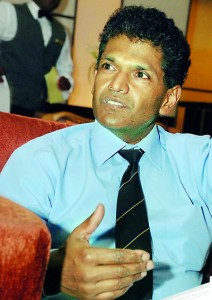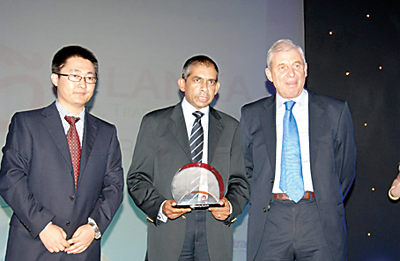Australian Maritime College offers maritime qualifications from certificates to Ph.D.

Associate Prof.Dev Ranmuthugala
It has often been said that scientists, and the human race as a whole, knows more about outer space than the depths of the oceans. The oceans have always been a place of mystery with environmental and physical conditions that make it nearly impossible to approach certain oceanic regions. Maritime engineers are constantly pushing the boundaries of engineering and conduct research to ensure that structures and vehicles can withstand the uncertainty of the ocean – thus enabling a better understanding of the depths of the ocean.
The Australian Maritime College (AMC) is a specialist institute of the University of Tasmania, it is Australia’s national institute for maritime and maritime-related education, training and research. AMC is one of the seven founding members of the International Association of Maritime Universities.
“Maritime engineering is a very broad area that deals with maritime platforms and vehicles, and it is a very complex field that is highly specialised and exciting at the same time. Maritime engineers have to be highly skilled as they are dealing with an ocean environment that has a lot of unknowns.They have to be able to adapt to it and build structures in these environments, that will be sustainable and also environmentally friendly” said Associate Prof.Dev Ranmuthugala, Acting Director of National Centre for Ports and Shipping (AMC), “It is a hostile environment especially when experiencing very high water pressure in deep water, which is why it is important that students gain the right skills. Maritime engineering deals with a variety of structures and vehicles, ranging from design and construction of oil rigs, and breakwaters to ships and underwater vehicles such as submarines” added Prof. Ranmuthugala.
The University of Tasmania via AMC is the only university in Australia that is specialised in maritime engineering, “Globally there are just a few universities that have a specialised faculty for maritime engineering” said Prof. Ranmuthugala “Maritime engineering is highly specialised and requires complex facilities and equipment to simulate the behaviour of these platforms for natural ocean conditions, AMC has the ability to offer these facilities to its students, in their practical lessons and even for post-graduate research. We have four large hydrodynamic tanks, where parameters such as resistance and propulsion are experimentally tested against computational results” added Prof. Ranmuthugala. He further added that AMC provides all the facilities at one location whereas in most other universities students would have to travel to several institutions to gain the same experience.AMC has built strong relationships with several organisations through consultancy and research projects. These projects, which range in ship design, coastal and off-shore structures and machinery and defence are attended to by a team from AMC including students. “This is where our students gain the industrial training, they face real problems, real technology, real ethics and issues; these lessons cannot be provided in a class room. Some of our students work on these projects for several months to a year” said Prof.Ranmuthugala. He further added “we also engage students to work on projects in teams, where the teams would be multi-cultural and would have students from post-graduate and undergraduate levels, or students from different discipline areas. Through this they learn to communicate with individuals from different operational levels and nationalities, this again prepares them for the real-world situation”.
AMC currently has five staff members who are from Sri Lanka, and many Sri Lankan students have gone through AMC, “students can enroll directly at AMC or they can follow lessons for the first two years at our partner institutes and transfer to AMC to complete the engineering degree. Our partner institute in Sri Lanka is CINEC. In the past, we have seen that students from Sri Lanka do very well at AMC” said Prof. Ranmuthugala, speaking further on access to facilities he added “all our students have access to the engineering facilities on campus, it is not limited to students who are conducting research” .
Speaking on scholarship opportunities for high achiever students Prof.Ranmuthugala said “we offer scholarships for students who have done very well at their advanced levels, and also to top students transferring from our partner institutes. We also provide scholarships for Ph.D. students to conduct research using the facilities at AMC”.
What advice would Prof. Ranmuthugala give to students aspiring to follow a career in the field of maritime engineering? “Students should first do some research on the career and job description, and then they should look at what educational experience is needed to gain entrance to that career option. Many students do this the other way around. You would also need to be reasonably good in mathematics and physics, and want to solve problems”, speaking further on student perceptions Prof. Ranmuthugala added “Many females are not interested in maritime engineering as they believe it is a job that requires them to be out at sea, but this is not so. A maritime engineer is involved in designing and building structures and vehicles for the ocean, and they need to visit the location and ensure the platform is sustainable and functional but they do not need to be out at sea. We have had female students who have graduated and they have returned to complete their Ph.D. research as well. We want to encourage female students to join maritime engineering and we offer benefits such as scholarships and accommodation to encourage them to join”.
If you are a student who is looking for an exciting career in a futuristic industry, maritime engineering at AMC would be a good choice for you.
Follow @timesonlinelk
comments powered by Disqus



























